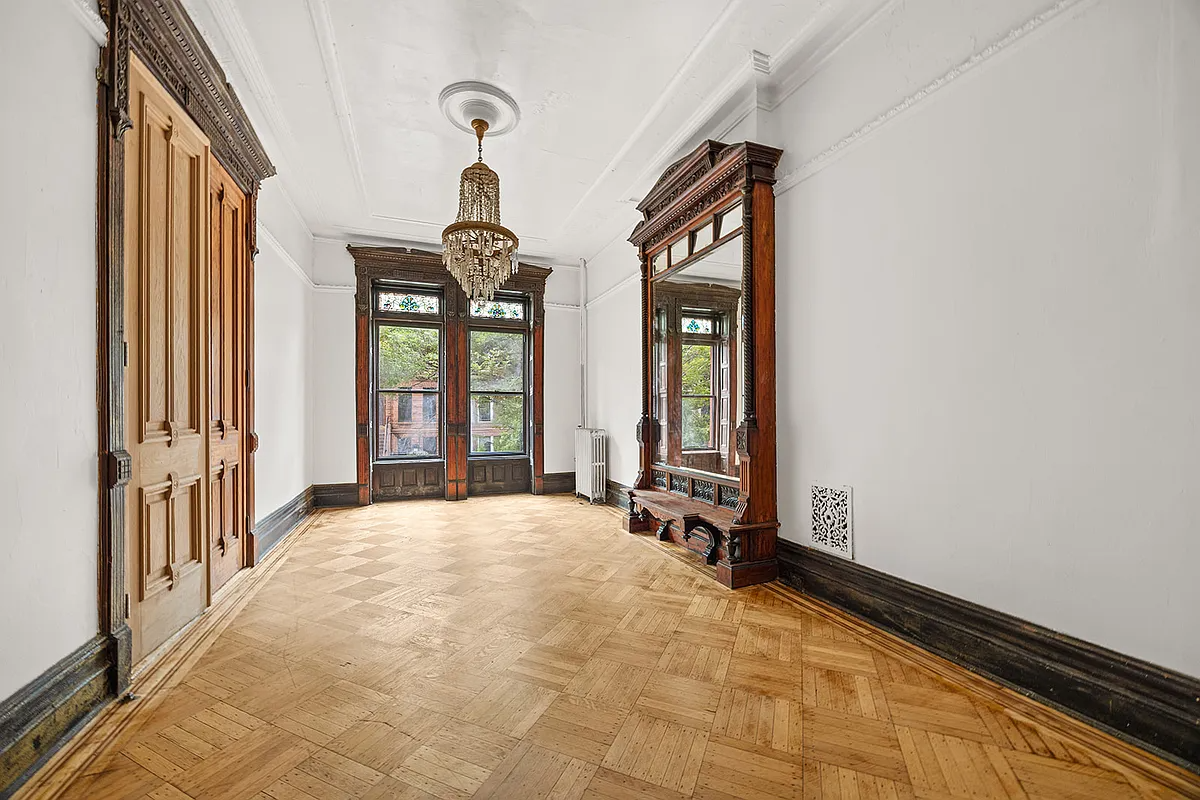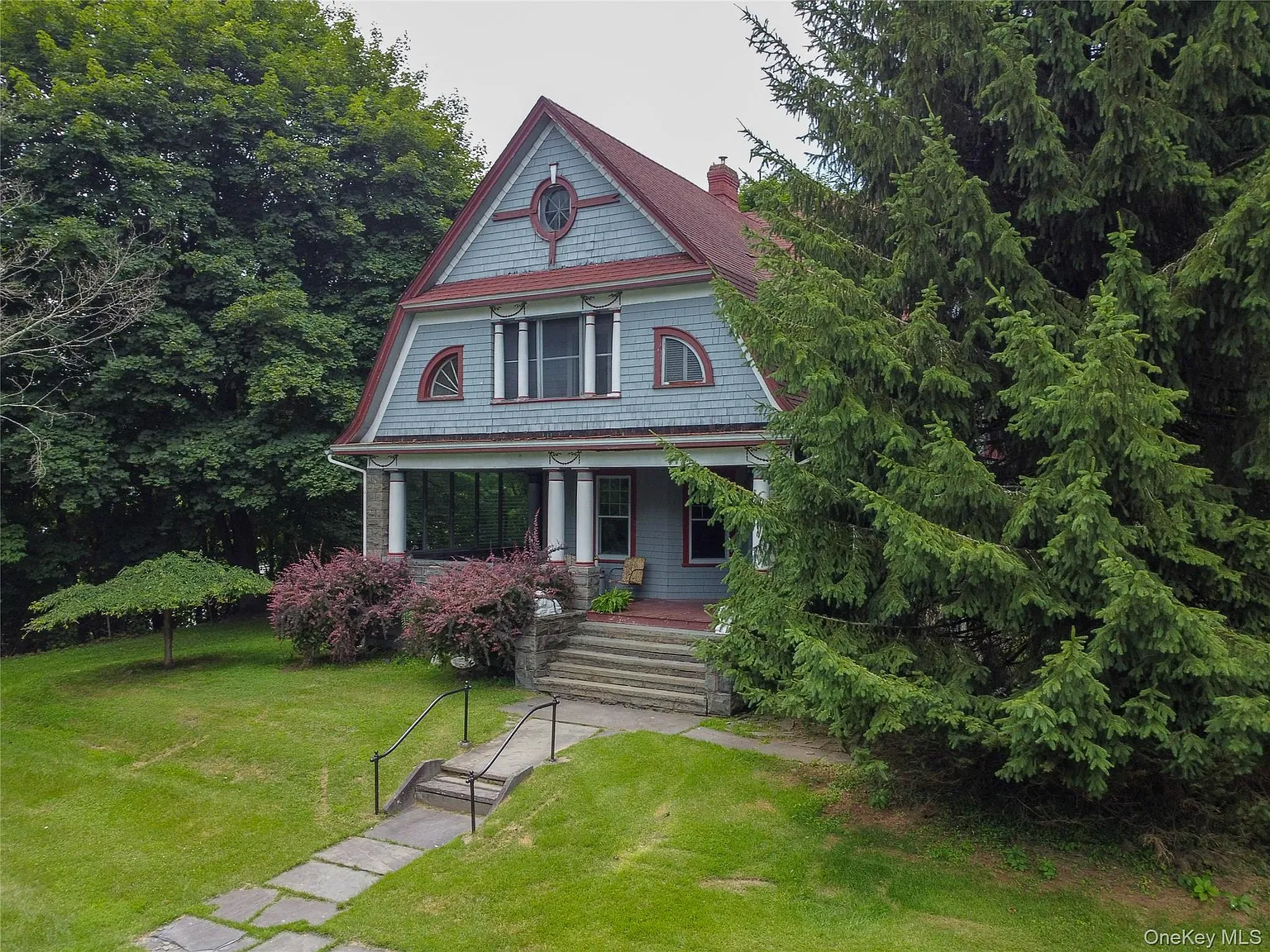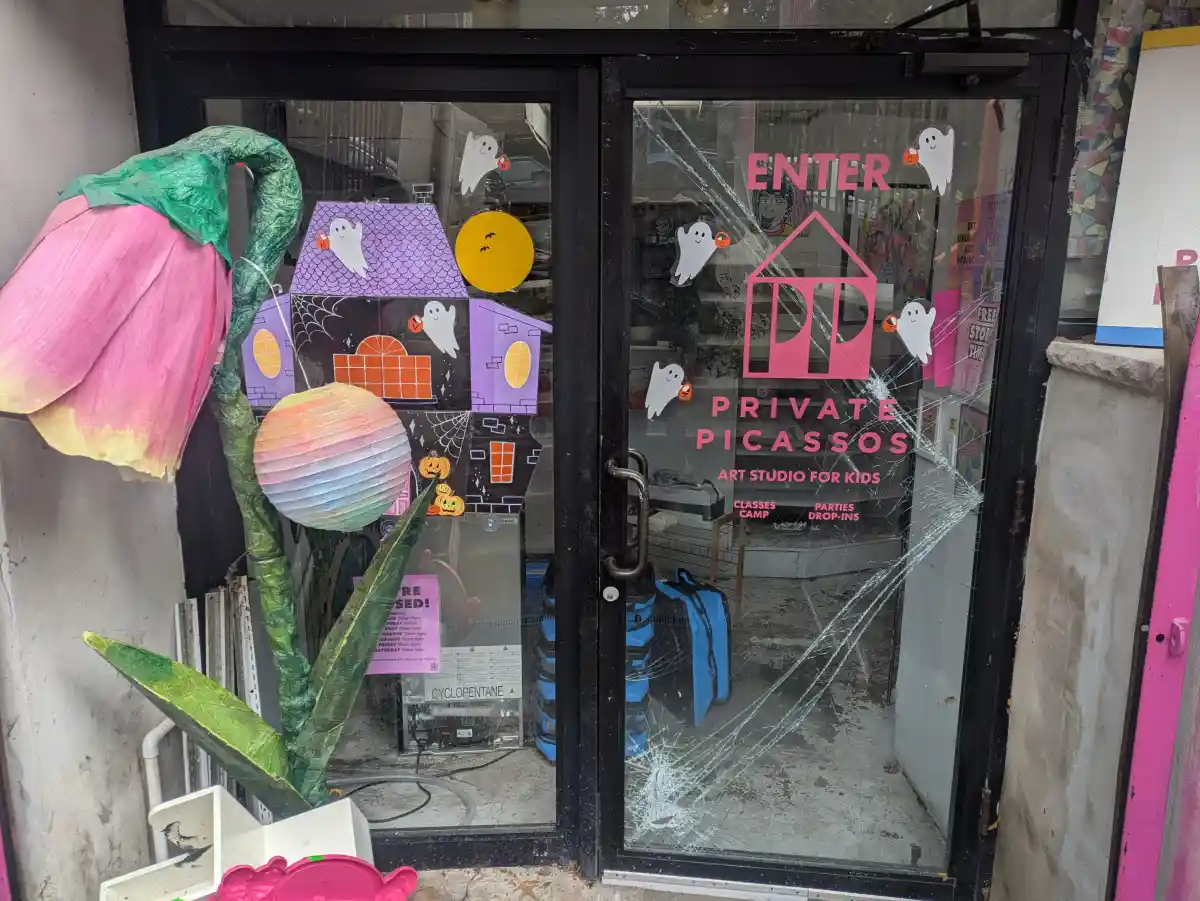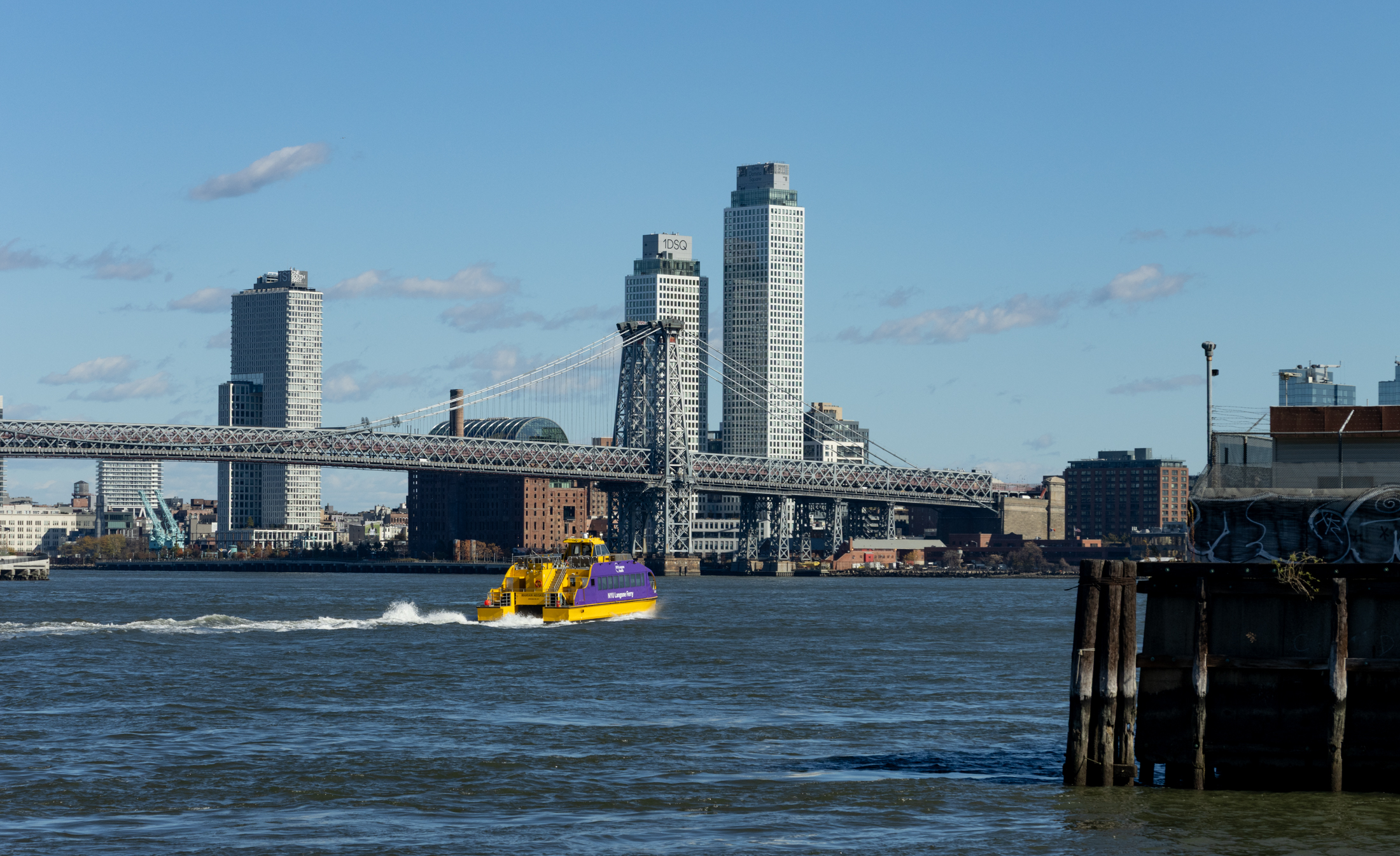Nine Bklyn Councilmembers Vote Against Congest Fee
Yesterday the City Council voted in favor of congestion pricing “by an unusually slim margin,” according to the Times. Nay votes from many Brooklyn and Queens Councilmembers contributed to that 30-20 outcome, per a pdf sent out by the Queens Civic Congress (reprinted on the jump). Seven Brooklyn councilmembers—Simcha Felder, Sara M. Gonzalez, Letitia James,…

 Yesterday the City Council voted in favor of congestion pricing “by an unusually slim margin,” according to the Times. Nay votes from many Brooklyn and Queens Councilmembers contributed to that 30-20 outcome, per a pdf sent out by the Queens Civic Congress (reprinted on the jump). Seven Brooklyn councilmembers—Simcha Felder, Sara M. Gonzalez, Letitia James, Domenic M. Recchia, Kendall Stewart, Albert Vann, and David Yassky—voted for the plan. On the other hand nine Brooklyn councilmembers voted against congestion pricing: Diana Reyna, Charles Barron, Bill de Blasio, Erik Martin Dilan, Mathieu Eugene, Lewis A. Fidler, Vincent J. Gentile, Darlene Mealy, and Michael C. Nelson. The Brooklyn no-ways were second only to the number from Queens; our Long Island neighbor had 10 councilmembers voting against the proposal, which now heads to Albany for approval.
Yesterday the City Council voted in favor of congestion pricing “by an unusually slim margin,” according to the Times. Nay votes from many Brooklyn and Queens Councilmembers contributed to that 30-20 outcome, per a pdf sent out by the Queens Civic Congress (reprinted on the jump). Seven Brooklyn councilmembers—Simcha Felder, Sara M. Gonzalez, Letitia James, Domenic M. Recchia, Kendall Stewart, Albert Vann, and David Yassky—voted for the plan. On the other hand nine Brooklyn councilmembers voted against congestion pricing: Diana Reyna, Charles Barron, Bill de Blasio, Erik Martin Dilan, Mathieu Eugene, Lewis A. Fidler, Vincent J. Gentile, Darlene Mealy, and Michael C. Nelson. The Brooklyn no-ways were second only to the number from Queens; our Long Island neighbor had 10 councilmembers voting against the proposal, which now heads to Albany for approval.
City Council Approves Fee to Drive Below 60th [NY Times]
Congestion Pricing Passes Council, Brooklyn Vote 9-7 Against [Gowanus Lounge]
Photo by wka.
Who voted for the Congestion Tax (30)
Y – Eric N. Gioia, 26, Queens, Democrat
Y – John C. Liu, 20, Queens, Democrat
Y – Hiram Monserrate, 21, Queens, Democrat
Y – James Sanders, Jr., 31, Queens, Democrat
Y – Thomas White, Jr. 28, Queens, Democrat
Y – Maria del Carmen Arroyo, 17, Bronx, Democrat
Y – Maria Baez, 14, Bronx, Democrat
Y – Gale A. Brewer, 6, Manhattan, Democrat
Y – Inez E. Dickens, 9, Manhattan, Democrat
Y – Simcha Felder, 44, Brooklyn, Democrat
Y – Daniel R. Garodnick, 4, Manhattan, Democrat
Y – Alan J. Gerson, 1, Manhattan, Democrat
Y – Sara M. Gonzalez, 38, Brooklyn, Democrat
Y – Robert Jackson, 7, Manhattan, Democrat
Y – Letitia James, 35, Brooklyn, Working Families
Y – G. Oliver Koppell, 11, Bronx, Democrat
Y – Jessica S. Lappin, 5 Manhattan, Democrat
Y – Melissa Mark-Viverito, 8, Manhattan, Democrat
Y – Miguel Martinez, 10, Manhattan, Democrat
Y – Michael E. McMahon, 49 Staten Island, Democrat
Y – Rosie Mendez, 2, Manhattan, Democrat
Y – Annabel Palma, 18, Bronx, Democrat
Y – Christine C. Quinn, 3, Manhattan, Democrat
Y – Domenic M. Recchia, Jr., 47, Brooklyn, Democrat
Y – Joel Rivera, 15, Bronx, Democrat
Y – Larry B. Seabrook, 12, Bronx, Democrat
Y – Kendall Stewart, 45, Brooklyn, Democrat
Y – James Vacca, 13, Bronx, Democrat
Y – Albert Vann, 36, Brooklyn, Democrat
Y – David Yassky 33, Brooklyn, Democrat
ABSENT
Helen D. Foster, 16, Bronx, Democrat
Who voted AGAINST the Congestion Tax
N – Joseph P. Addabbo, Jr., 32, Queens, Democrat
N – Tony Avella, 19, Queens, Democrat
N – Leroy G. Comrie, Jr., 27, Queens, Democrat
N – Dennis P. Gallagher, 30, Queens, Republican
N – James F. Gennaro, 24, Queens, Democrat
N – Melinda R. Katz, 29, Queens, Democrat
N – Diana Reyna, 34, Brooklyn/Queens, Democrat
N – Helen Sears, 25, Queens, Democrat
N – Peter F. Vallone Jr., 22, Queens, Democrat
N – David I. Weprin, 23, Queens, Democrat
N – Charles Barron, 42, Brooklyn, Democrat
N – Bill de Blasio, 39, Brooklyn, Democrat
N – Erik Martin Dilan, 37, Brooklyn, Democrat
N – Mathieu Eugene, 40, Brooklyn, Democrat
N – Lewis A. Fidler, 46, Brooklyn, Democrat
N – Vincent J. Gentile, 43, Brooklyn, Democrat
N – Vincent Ignizio, 51, Staten Island, Republican
N – Darlene Mealy, 41, Brooklyn, Democrat
N – Michael C. Nelson, 48, Brooklyn, Democrat
N – James S. Oddo, 50, Staten Island, Republican





While I am for the idea of a disincentive to auto access in NYC, I have major concerns with the transparency of the MTA as the agency which gets the revenue. The MTA has a terrible track record of transparency and accountability. Bloomberg has promised significant improvements in mass transit but in reality has little control over whether or not those improvements actually happen. The MTA made significant promises to improve service at the end of 07 in exchange for the fare increase but now has put improvements on hold. I believe for this plan to be anything but a exclusionary slush fund, the MTA must be more accountable to the public. We must increase the transparency of this “authority” and we should do the same with the Port Authority and the TBTA. These organizations have vast income but little transparency and accountability. Without such changes I have grave doubts that congestion pricing would have positive effects on Manhattan.
P.S. Why don’t we extend the zone to include the entire city?
“Plus, I guess we can finally write off China town as the last viable ethnic neighborhood in lower Manhattan as the poor Chinese will now be priced out from visiting with their families.”
What? Can’t Chinese people take the subway?
And don’t give me a sob story about it being a tax on the working man. Why can’t he take the subway.
And the for the small business man, why is it not a right off the same as for the rich business man?
How is this about class? If the arguement is that people driving in are less affluent than those taking the train, then I’d like to see the data supporting it. I pay about a $1,000 a year for my monthly metro card. I also have a car and know that I pay almost twice that amoutn for insurance alone. My guess is that people who drive in are more affulent than those taking the train.
Truck fee is not $8 but $21.
10:45. Local deliveries need to be delivered, of course. What we don’t need is freight moving in from Jersey to supply all of Long Island going through our neighborhoods and clogging our streets and highways locally (and visa-versa). Remember, Brooklyn and Queens are just the access point for an island that is 150 miles long. It’s called “Long Island.”
It figures Tish James would sell out on this issue. Selling out is her modus operandi.
Want people to take mass transit? Fine, then upgrade mass transit FIRST, THEN institute congestion pricing. I don’t know if you noticed or not, but the trains are bloody crowded. At rush hour you’re lucky if you can sandwich yourself into one like a sardine.
And don’t spin the old fairytale about how congestion pricing will pay for a mass transit upgrade. I mean, does anyone actually believe this will happen?
Congestion pricing will only result in worse mass transit conditions. In other words, lower quality of life for the working people of this city and improved quality of life for the lucky few who can afford to hang their hats in Manhattan. That really is the long and short of it.
It’s not about the environment. It’s about class. It’s about money.
I just want to know if city employees who already park wherever they want to will have to pay the fee, or if they’re exempt.
In the morning rush hour there’s a very high percentage of official vehicles being driven to work by people who are allowed to take them home at night. As long as these guys are allowed to avoid the fee or have it reiumbursed by the city (taxpayers), auto traffic into the city won’t decrease very much.
Since most of Manhattan is now residential, almost everything has to be trucked in. In the grand plan to make the island below 60th street a huge enclave of the rich, our city planners have eliminated most of the industry, and most of the kinds of businesses that make the city work – meat, produce, fish, and other food deliveries, not to mention furniture, clothing, and everything else we depend on for modern and convenient life. Manhattan is not self sufficient, it’s truly an island.
Having been in a business where I’ve occassionaly had to deliver goods to customers, it’s a bitch. Our company car has commercial plates, so we can park some places, like the garment center, but can’t use the FDR, residential plates can’t park anywhere to deliver anything. Most of the truckers I see are small guys with vans and small trucks, struggling just to get gas, which is almost impossible to get below 60th street. They all have addresses in other boroughs, and making daily multiple deliveries is going to kill them. If they are able to pass it along to customers, that only means it gets passed back to us, in terms of higher food costs, restaurant costs, general delivery costs.
In other words, whether we drive or not, we will be paying for this.